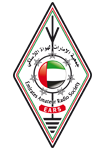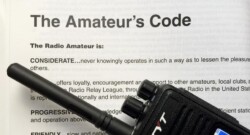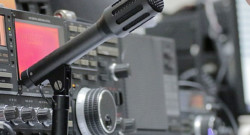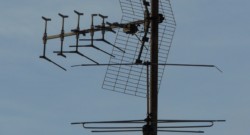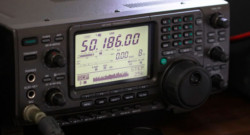Author: admin
The Radio Amateur’s Code
The Radio Amateur is 1) CONSIDERATE…He/[She] never knowingly operates in such a way as to lessen the pleasure of others. 2) LOYAL…He/[She] offers loyalty, encouragement and support to other amateurs, local clubs, the IARU Radio Society in his/[her] country, through which Amateur Radio in his/[her] country is represented nationally and internationally. 3) PROGRESSIVE…He/[She] keeps his/[her] station up to date. It is well-built and efficient. His/[Her] operating practice is above reproach. 4) FRIENDLY…He/[She] operates slowly and patiently when requested; offers friendly advice and counsel to beginners; kind assistance, cooperation and consideration for the interests of others. These are the marks of the amateur spirit. 5) BALANCED…Radio is a hobby, never interfering with duties owed to family, job, school or community. 6) PATRIOTIC…His/[Her] station and skills are always ready for service to country and community. – adapted from the original Amateur’s Code, written by Paul M. Segal, W9EEA, in 1928.
All About Ham Radios!
Amateur Radio (ham radio) is a popular technical hobby and service that brings people, electronics and communication together. Amateur Radio operators, commonly known as Hams make use of the designated radio frequencies for non-commercial exchange of messages, wireless experimentation, self-training, and emergency communications. Ham Radio can be used to talk across town, around the world, or even into space, all without the Internet or cell phones. It is fun, social, educational, and can be a lifeline during natural disasters and calamities. Amateur Radio hobby is governed by international treaty. The International Amateur Radio Union (IARU) is the worldwide federation of national Amateur Radio organizations. The membership of the IARU consists of more than 160 member-societies in as many countries and separate territories. The IARU was founded at a meeting in Paris in 1925 as the international representative of the Amateur Radio movement. At the time, the “short waves” were just beginning to be understood and to be exploited for global communication using power levels and antennas that were within reach of private individuals operating from their own homes. These radio amateurs needed an organization to coordinate their activities and to be their voice at international conferences. The IARU is recognized by the International Telecommunication Union (ITU) as the representative of the interests of its member societies and radio amateurs throughout the world. The IARU is a Sector Member of the ITU Radiocommunication (ITU-R) and Development (ITU-D) Sectors and participates in the Study Groups of both Sectors.The International Telecommunication Union (ITU) is a specialized agency of the United Nations responsible for all matters related to information and communication technologies. it was Established in 1865 as the International Telegraph Union. The IARU is organized into three regions, named Region 1, Region 2, and Region 3. These regions correspond to the regulatory regions used by the International Telecommunication Union. All three regions have appointed Coordinators for Amateur Radio Direction Finding, emergency communications, monitoring for electromagnetic interference, and radio propagation. UAE is in the IARU Region 1 and Emirates Amateur Radio Society, EARS represents UAE. As a radio amateur you are able to transmit radio signals on a number of frequency bands allocated specifically to the radio amateurs by the national telecom regulator of each country. Telecom Regulatory Authority – TRA is the federal telecommunications regulatory agency of the United Arab Emirates
Amateur Radio and Emergencies
Amateur radio is so useful to emergency communications because it does not depend on any infrastructure. That means amateur radio does not rely on the electrical power grid or any cabled network. Although mobile phones and the internet have wireless capability, they are still dependent on fixed masts and cabling which can be severely disrupted by a natural or man-made disaster; so while very useful in an emergency, mobiles and the internet cannot be relied upon completely. When the phone lines are down and the electricity is off, it is still possible to communicate worldwide with amateur radio using only battery power. This versatility has saved many lives over decades of amateur radio emergency service. Amateur radio still gets through when everything else has failed. UAE is blessed with relatively stable weather system and low risk of natural disasters (as measured in the World Risk Index, calculated by the United Nations University Institute for Environment and Human Security (UNU-EHS) ). However Emergency preparedness is all about expecting the unexpected and be ready to serve the nation and society when in need. Emirates Amateur Radio Society, EARS and its members are committed to provide Emergency Communications during natural calamities and disasters. EARS conduct routine readiness and preparedness exercises including mock drill activities that fall over a wide range of scale, scope, and complexity. Amateur Radio in the 21st century is a modern and useful emergency communications medium. If you are interested in obtaining your amateur license to serve your community, please contact Emirates Amateur Radio Society, EARS.
